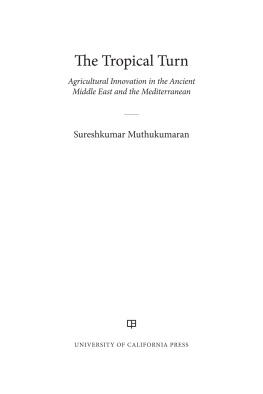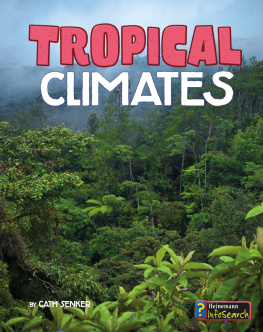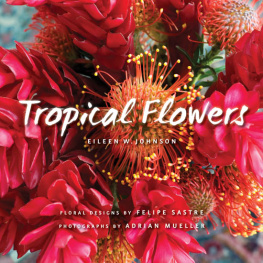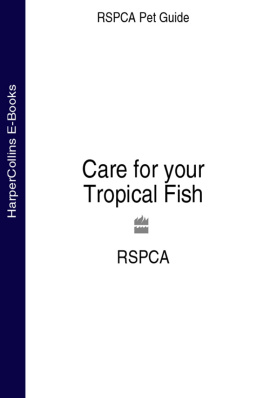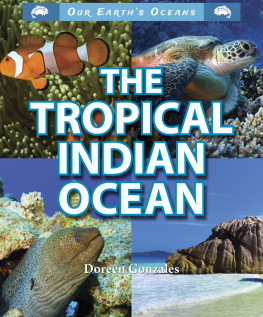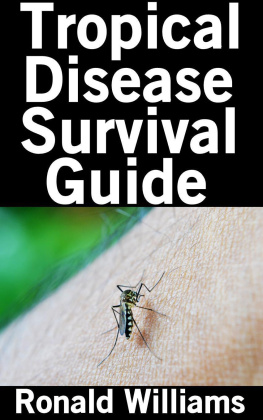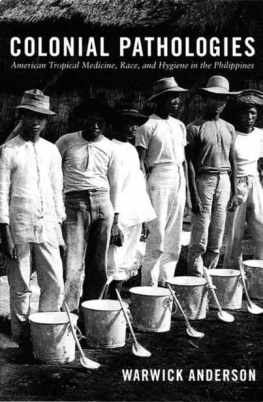Stanford University Press
Stanford, California
2012 by the Board of Trustees of the Leland Stanford Junior University.
All rights reserved.
This book has been published with the assistance of the Faculty of Liberal Arts and Professional Studies at York University.
No part of this book may be reproduced or transmitted in any form or by any means, electronic or mechanical, including photocopying and recording, or in any information storage or retrieval system without the prior written permission of Stanford University Press.
Printed in the United States of America on acid-free, archival-quality paper
Library of Congress Cataloging-in-Publication Data
Neill, Deborah Joy, author.
Networks in tropical medicine : internationalism, colonialism, and the rise of a medical specialty, 18901930 / Deborah J. Neill.
pages cm
Includes bibliographical references and index.
ISBN 978-0-8047-7813-8 (cloth : alk. paper)
ISBN 978-0-8047-8105-3 (e-book)
1. Tropical medicineEuropeColoniesHistory. 2. Tropical medicine AfricaInternational cooperationHistory. 3. African trypanosomiasis PreventionHistory. 4. Public healthEuropeColoniesHistory.
5. FranceColoniesAfricaHistory. 6. GermanyColoniesAfrica History. I. Title.
RC962.E85N45 2012
362.196"9883dc23
2011030707
Typeset by Bruce Lundquist in 10/12 Sabon
Acknowledgments
I wish to thank many people for helping me see this book through to completion, beginning with Jim Retallack and Eric Jennings. Jim Retallack first suggested that I explore a topic related to European colonialism, and Eric Jennings encouraged and guided me as I embraced the study of tropical medicine. They are mentors, colleagues, and friends, and their ongoing support and advice have helped me immeasurably. I am also grateful to John Noyes and Modris Eksteins, both of whom challenged me to think in broad terms and to interrogate the historians role and responsibility in creating narratives about the past. Alice Conklin has offered many important insights and served as a patient reader; her input has helped me clarify my ideas and shaped my perspective. Andrew Zimmerman has also been a kind interlocutor and a source of inspiration as I grappled with transnationalism, colonialism, and the history of European empires in Africa.
Numerous granting agencies allowed me to complete the research, including the Deutscher Akademischer Austausch Dienst (DAAD); the Joint Initiative in German and European Studies at the University of Toronto; the Social Sciences and Humanities Research Council (SSHRC); the Ontario Ministry of Training, Colleges and Universities; Associated Medical Services; and York University. I am also indebted to numerous archivists and librarians who kindly helped me find documents and offered valuable assistance, including Stphane Kraxner at the Institut Pasteur and Emma Golding at the London School of Hygiene and Tropical Medicine. I also owe many thanks to the patient staff at the Bundesarchiv Berlin-Lichterfelde, Geheimes Staatsarchiv Preuischer Kulturbesitz in Berlin-Dahlem, Archives nationales doutre-mer in Aix-en-Provence, Bernhard-Nocht-Institut in Hamburg, Wellcome Library in London, Max Planck Institut in Berlin, Rockefeller Archive Center in Sleepy Hollow, and the National Archives of the Presbyterian Historical Society in Philadelphia.
Various institutions and societies have provided me with opportunities to present my work over the past few years, and I am grateful to the Center for International History at Columbia University, McMaster colloquium on the History of Medicine, Joint Atlantic Seminar for the History of Medicine at Johns Hopkins University, University of MassachusettsAmherst, Faculty-Graduate seminar at the International University Bremen, seminar of Rdiger vom Bruch at Humboldt University, African Studies Association, Society for French Historical Studies, and American-Canadian Conference on German and European History. I would also like to thank the Wellcome Library in London and the Basel Mission Archives/Basel Mission Holdings for permission to use images from their collections throughout this book.
Since embarking on this project, I have benefited from the suggestions and ideas of supportive colleagues and mentors who have generously helped me work through many issues and problems. Pascal Grosse first suggested that I explore sleeping sickness, and Wolfgang Eckart provided a sympathetic ear and timely guidance about sources and documents that were enormously helpful as I began archival research. I would also like to thank Mark Roseman, George Trumbull, Katie Edwards, Jeff Bowersox, Bradley Naranch, Geoff Hamm, Erin Hochman, Thor Burnham, Juanita de Barros, Brett Van Hoesen, Matt Bera, Marcus Funck, Dan Bullard, Jonathan Roberts, and Sean Hawkins. A special word of thanks goes to Mari Webel, Myriam Mertens, and Manuela Bauche, all fellow travelers in the histories of human trypanosomiasis and colonial medicine, for providing me not only with insights and advice but also with access to some of their pioneering work. Long talks with Mari, moreover, have helped me clarify my thinking and remind me why I love this field. Erwin Fink and Nathalie Dub read through translations and provided much help in navigating tricky passages and ideas. My colleague Bill Irvine read the entire manuscript both carefully and critically and has been a role model and mentor to me at York University. I would like to thank the patient and encouraging team of Norris Pope, Carolyn Brown, and Sarah Crane Newman at SUP, copyeditor Cynthia Lindlof, as well as Bill Nelson, who prepared the map, and the indexer, Nick Koenig
I am also grateful for the support of Rebecca Wittmann, Helmut Smith, and Jan Palmowski: all three have cheerfully read drafts, offered critical suggestions, responded to my questions and inquiries, and helped me clarify main points and core ideas. To Valerie Hbert and Lisa Todd, it is difficult to convey how much their encouragement and good humor have meant to me over the years, and I am immensely grateful to them. Thanks also to my parents, Richard and Marion Neill; my sisters Valerie Lyon, Judith Gerber, and Shirley Buchanan; Dennis and Lenore Dueck; and Rochelle Padua for always being there when I need them. Finally, I dedicate this work to my daughter, Claire; my son, Jackson; and my husband, Andrew Dueck. They have endured the late nights, foreign travel, and preoccupations of a historian, and their unflagging love and support have sustained me through the many demands of this project.
Introduction

In 1901, John Todd, a medical student at McGill University in Montreal, arrived in Liverpool to begin a fellowship at the School of Tropical Medicine. Todd, whose original goal had been to become a surgeon, was transformed by his experience at the school. He was introduced to a new and exciting field of medicine, enjoyed the collegiality of cosmopolitan colleagues, and had the opportunity to visit laboratories across western Europe, where he rubbed shoulders with famous members of the small but growing tropical medicine community. He also joined several Liverpool expeditions to Africa, including one to Senegambia and French West Africa in 19021903, and another to the Congo Free State in 19031905. These trips were instrumental in establishing his reputation as a tropical medicine expert and provided him with material for numerous publications. Upon his return to Liverpool, Todd became the director of a major laboratory and served as an adviser to the British Colonial Office, and he eventually returned to Canada after gaining a prestigious position as associate professor of parasitology at McGill.


